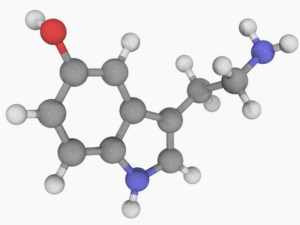Characterized by intense, throbbing headaches often accompanied by sensory disturbances, migraines are complex neurological events that impact millions of individuals worldwide. But what causes migraines exactly? And what can be done to relieve the pain of those who suffer from them?
Carolina Brain Center is committed to a holistic approach to healthcare. This means that our focus is on treating not just your symptoms, but you as a whole person. Doing that requires understanding the neurological causes behind a variety of conditions, including migraines.
What’s more, we believe that by helping you understand what causes migraines, we can empower you to make the best choices for your health, quality of life, and peace of mind. To learn more about what Carolina Brain Center can do for you, don’t hesitate; call us today!
Are Migraines a Neurological Disorder?
Yes, migraines are classified as a neurological disorder due to their specific involvement of the nervous system. They are not (as some people mistakenly believe) merely severe headaches. Instead, they are complex events rooted in abnormal neurological processes. The brain’s intricate network of neurons, neurotransmitters, and vascular components contributes to the initiation, progression, and resolution of migraines.
The classification of migraines as a neurological disorder is supported by extensive scientific research that has elucidated the intricate neurological pathways and mechanisms involved in migraine pathophysiology. Advanced imaging techniques like functional magnetic resonance imaging (fMRI) and electroencephalography (EEG) have provided valuable insights into the brain activity alterations during migraine attacks, further cementing their neurological basis.
Migraines’ neurological nature is evident not only in the headache phase but also in the premonitory symptoms, aura, and postdrome experienced by many individuals. These phases often involve various neurological manifestations, such as sensory disturbances, visual changes, and alterations in mood and cognition, further emphasizing the condition’s neurological underpinnings.

Neurological Pathways Involved in Migraines
Migraines are widely recognized as a neurological disorder due to their intricate involvement of the nervous system. These headaches often stem from abnormal brain activity that affects various areas, including the trigeminal nerve, brainstem, and cortical regions.
Neuro-Physiologic Imbalances
Neurotransmitters, the chemical messengers in the brain, also play a role in migraine pathophysiology. Imbalances in neurotransmitters like serotonin, dopamine, and calcitonin gene-related peptide (CGRP) have been associated with migraines. Serotonin levels, for instance, can impact blood vessel constriction and dilation, potentially influencing migraine onset.
Trigeminal Nerve Sensitization
One significant aspect of migraines involves the trigeminal nerve, a cranial nerve responsible for transmitting sensory information from the face to the brain. During a migraine attack, this nerve becomes sensitized, leading to the release of neuropeptides and inflammatory substances. This process results in the dilation of blood vessels and triggers the characteristic pain associated with migraines.
Cortical Spreading Depression
Another key neurological phenomenon implicated in migraines is cortical spreading depression (CSD). CSD involves a wave of neuronal hyperactivity followed by a temporary suppression of neural activity that propagates across the brain’s cortex. This wave is believed to trigger visual disturbances (aura) experienced by some migraine sufferers before the onset of the headache phase.
Carolina Brain Center Offers Holistic Migraine Treatment
It’s important to recognize that the answer to the question “Are migraines a neurological disorder?” is a resounding “yes.” This classification of migraines underscores the need for specialized neurological approaches in their management and treatment. Only by treating migraines as a serious and complex condition can patients truly get the care they need.
Here at Carolina Brain Center, we believe that the best way to combat the effects of chronic migraines is through the creation of personalized, patient-centered treatment plans. We know that no two brains are exactly alike, and that’s why no two treatment plans should be exactly alike.
Let’s work together to build a specialized and (most importantly) effective treatment plan just for you. Schedule an appointment with Carolina Brain Center now!

